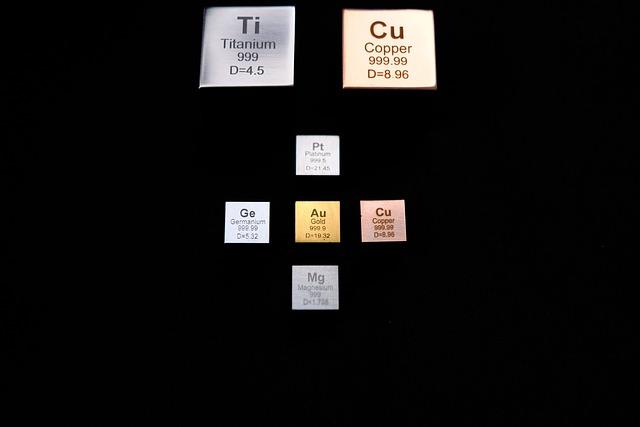in teh quest for a good night’s sleep and deeper relaxation, natural supplements have emerged as a beacon of hope for many seeking solace from the stresses of modern life. Among the various options available on the market, magnesium—a mineral vital for numerous bodily functions—has gained significant attention, especially in its two popular forms: magnesium glycinate and magnesium citrate. both promise potential benefits for sleep quality and relaxation, yet they differ in their composition, absorption, and specific effects. As we delve into the intricacies of these two forms of magnesium, we’ll explore their unique characteristics, benefits, and potential drawbacks, ultimately guiding you toward the choice that may best suit your needs for achieving a restful mind and a tranquil body. Join us on this journey of discovery to determine which magnesium may hold the key to unlocking the restful slumber you’ve been searching for.
Understanding Magnesium’s Role in Sleep and Relaxation
Magnesium plays a crucial role in promoting relaxation and facilitating a restful night’s sleep. This essential mineral has been shown to help regulate neurotransmitters that send signals throughout the nervous system and brain, contributing to a sense of calm. Magnesium deficiency can lead to increased levels of stress hormones, making it harder for individuals to unwind. ensuring adequate magnesium intake through dietary sources or supplements can diminish anxiety levels and improve sleep quality, especially in those who suffer from insomnia or other sleep-related disorders.
When considering magnesium supplements for enhanced sleep, two popular forms are Magnesium Glycinate and Magnesium Citrate. Magnesium Glycinate is often praised for its superior bioavailability and gentle effect on the digestive system, making it a preferred choice for those seeking to alleviate anxiety and promote restful sleep. Conversely, Magnesium citrate, though slightly less effective in calming the nervous system, may help with constipation and digestive issues. Below is a comparison of their benefits:
| Form | Benefits | Considerations |
|---|---|---|
| Magnesium Glycinate |
|
May be more expensive |
| Magnesium Citrate |
|
Can cause loose stools in some |

Comparative Benefits of Glycinate and Citrate for a Restful Night
When it comes to enhancing sleep quality and relaxation, the choice between glycinate and citrate forms of magnesium can make a remarkable difference. Magnesium glycinate,known for its high absorption rate and gentle effects on the stomach,is a popular choice for promoting tranquility and better sleep. individuals seeking a restful night may find that glycinate not only helps reduce anxiety but also contributes to a deeper sleep cycle due to its calming properties. This form gently relaxes muscles and eases tension, making it an excellent option for those struggling with nighttime restlessness.
On the other hand, magnesium citrate can serve as an effective supplement for those in need of digestive support as well. While it may not be as potent in promoting sleep as glycinate, its efficacy in relaxing muscles and alleviating stress is not negligible. For certain users, citrate can provide additional benefits if taken earlier in the day, especially for those who experience tension-related insomnia. However, it is vital to note that its slightly laxative effect may lead to discomfort for some, so timing and dosage should be considered carefully. Below is a concise comparison of both forms:
| Aspect | Magnesium glycinate | Magnesium Citrate |
|---|---|---|
| Absorption Rate | High | Moderate |
| Sleep Enhancement | Excellent | Good |
| Digestive Support | Minimal | Good |
| Side Effects | Generally minimal | Possible laxative effect |

Dosage Recommendations and Timing for Optimal Results
To achieve optimal results with magnesium supplements, proper dosage and timing are essential. Research suggests that a daily intake of 200-400 mg of magnesium glycinate is typically effective for promoting relaxation and sleep without causing digestive discomfort. in contrast,magnesium citrate may require a slightly higher dose,ranging from 300-500 mg,due to its lower bioavailability.It’s important to start at the lower end of these recommendations and gradually increase the dosage, allowing your body to adjust while monitoring for any adverse reactions.
Timing your magnesium intake can also considerably enhance its effectiveness. Taking magnesium glycinate 30-60 minutes before bedtime can help calm the nervous system and prepare your body for a restful night’s sleep. Conversely, magnesium citrate may be best taken during the day, as its mildly laxative effect can be beneficial for digestive health, possibly aiding in relaxation throughout the day. Whether you choose glycinate or citrate, consistency in your routine will yield the best results.Here’s a swift reference table:
| Form | Recommended Daily Dosage | Optimal Timing |
|---|---|---|
| Magnesium Glycinate | 200-400 mg | 30-60 mins before bed |
| magnesium Citrate | 300-500 mg | During the day |

Potential Side Effects and Considerations for Safe Use
While both magnesium glycinate and citrate offer potential benefits for sleep and relaxation, it’s essential to consider the possible side effects associated with each form.Magnesium glycinate is generally well-tolerated,but some individuals may experience mild gastrointestinal issues,such as bloating or diarrhea. conversely, magnesium citrate is frequently enough more laxative in nature, which can lead to an upset stomach or an increased frequency of bowel movements. It’s crucial to listen to your body and monitor how you respond to each form of magnesium. If you experience significant discomfort or adverse effects, it may be worth reevaluating your choice or consulting a healthcare professional.
Moreover, certain health considerations should be taken into account before starting supplementation. Individuals with kidney problems or those on specific medications should be especially cautious, as magnesium can interact with various drugs, altering their effectiveness. It’s advisable to discuss your magnesium intake with your healthcare provider, especially if you have underlying health conditions or are pregnant. To simplify your understanding, here’s a quick overview of the side effects and considerations for both forms:
| Magnesium Form | Common Side Effects | Health Considerations |
|---|---|---|
| glycinate | Possible bloating, mild diarrhea | Consult if kidney issues are present |
| Citrate | Upset stomach, increased bowel movements | Potential drug interactions, discuss with a doctor |
To Wrap It Up
In the quest for a restful night and a calmer day, the choice between Magnesium Glycinate and Magnesium Citrate can feel daunting. Both forms of magnesium offer unique benefits, tailored to support sleep and relaxation in their own distinctive ways. Magnesium Glycinate,with its renowned calming properties and gentle impact on the digestive system,stands out as an excellent choice for those seeking serene slumber. On the other hand, Magnesium citrate shines for its potential to alleviate constipation and support overall wellness while still promoting relaxation.
Ultimately, the best option hinges on your individual needs, lifestyle, and how your body responds to each form. As you navigate the world of dietary supplements, consider consulting with a healthcare professional to find the perfect match for you. Whether you opt for the calming embrace of Glycinate or the versatile nature of Citrate, incorporating magnesium into your routine may just be the key to unlocking a deeper sense of tranquility and restorative sleep. Here’s to your journey toward a more relaxed and rejuvenated self!















Leave feedback about this